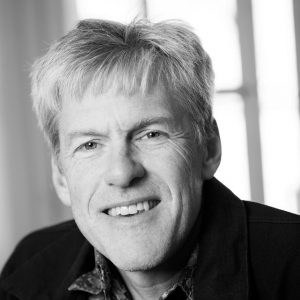Medieval Modal Spaces
 Robert Pasnau (Colorado, Boulder)
Robert Pasnau (Colorado, Boulder)
Abstract
There is often said to be something peculiar about the history of modal theory, up until the turn of the fourteenth century, when John Duns Scotus decisively reframed the issues. I wish to argue that this impression of dramatic discontinuity is almost entirely a misimpression. Premodern philosophers prescind from wide-open modal space of all possible worlds because they seek to adapt their modal discourse to the explanatory and linguistic demands of their context.
Biography
Robert Pasnau is College Professor of Distinction in the Department of Philosophy at the University of Colorado Boulder. He has worked in many areas of philosophy, but has particularly devoted himself to the history of philosophy, particularly at the end of the Middle Ages and the beginnings of the modern era. He is the editor of theCambridge History of Medieval Philosophy and the founding editor of Oxford Studies in Medieval Philosophy. His most recent book, After Certainty: A History of Our Epistemic Ideals and Illusions (OUP 2017), is based on his Isaiah Berlin Lectures, delivered at Oxford University in 2014. He is currently thinking about later medieval debates over freedom and autonomy, as well as about Islamic philosophy and various issues in epistemology.
Modern and Mediaeval modal spaces
 Arif Ahmed (Cambridge)
Arif Ahmed (Cambridge)
Abstract
The interesting question about modality is not about its extension but about its point. Everyone can agree (for instance) that the past is necessary in the Ockhamist sense but not in some ‘modern’ senses, and that the present is necessary in the Ockhamist sense but not in the Scotist sense. But why should it matter? These comments on Pasnau first set out a simple-minded explication in modern terms of some of these fourteenth-century ideas. Then I take issue with (a) Pasnau’s claim that the necessity of the past has got something to do with the structure of ‘narrative history’, and (b) Dun’s Scotus’s claim that the contingency of the present has got something to do with human freedom.
Biography
Arif Ahmed has been University Reader in Philosophy at Cambridge University since 2016 and a Fellow of Gonville and Caius College since 2015. He received an MA in Philosophy from the University of Sussex and a PhD from Cambridge University under the supervision of Edward Craig. He writes mainly on rational choice but has also written on religion, Wittgenstein and modality. His most recent book is Evidence, Decision and Causality (Cambridge, 2014) and he is currently finishing two more, also on rational choice: Evidential Decision Theory (Cambridge) and The Value of the Future (Princeton).
The supplementary volume for the conference will be available from 3-13 July.

Graeme A Forbes
10th July 2020 at 10:13 pm
Zagzebski (2015:195) poses a dilemma for views of the past as necessary:
“The root of the problem, then, is that it is impossible for there to be a type of modality that has the following features:
(a) The past and future are asymmetrical in that the past is necessary with respect to this type of modality, whereas the future is contingent with respect to this type of modality.
(b) There are propositions about the past that entail (or are logically equivalent to) propositions about the future.
(c) [Transfer of Necessity Principle] (or equivalently, [Transfer of Possibility Principle]) obtains.”
I wonder if the solution is to treat the necessity of the past as simply a different kind of necessity to the kind associated with being not-contingent. (I tend to think in terms of a modal change from potentiality to actuality over time). Would that get us a sense of the past being necessary that answers the demand that
“For even from god this power is kept, this power alone:
To make it true that what’s been done had never been.”?
(Aristotle Nichomachean Ethics 1139b10, trans. Christopher Rowe)
Bob Pasnau
11th July 2020 at 4:00 pm
Thanks much for this. I haven’t had a chance to look at the paper you quote, but it’s a beautiful way to put a fundamental problem that arises here. Zagzebski’s dilemma is one that one would have appealed, in the medieval context, to a determinist like Thomas Bradwardine. One common reply is to exclude from the scope of the past’s necessity precisely those propositions that Zagzebski describes in (b) — e.g., the proposition that the prophet knew in 2018 that there will be a plague in 2021. This has come to be known as Ockhamism, and Plantinga popularized a distinction along these lines between hard facts about the past and soft facts about the past. (“On Ockham’s Way Out,” Faith and Philosophy 1986). It turns out, in fact, that we shouldn’t call it Ockhamism, because this was a standard move two centuries before Ockham, as Marenbon pointed out in his 2005 book (in French!), and as Wciorka has documented in detail in a Vivarium paper just published this spring.
So there’s some scholarship for you! I’ll leave it to others to consider how satisfactory this is.
Graeme A Forbes
11th July 2020 at 10:06 pm
Bob (if I may),
Thanks for that! When I’ve been looking at this stuff, it’s mainly been the Stoics and ancient Greeks that I’ve been focussing on (e.g. Sorabji’s Necessity Cause and Blame in Aristotle), so thanks for the suggestions about where the medieval literature fits in.
So the response here is to seperate out the facts into two sorts, rather than the modality (and so deny Zagzembski’s b rather than c). Good.
Is there any secondary literature you would recommend on Bradwardine for a beginner? (local to me in Canterbury at one time, I see!)
The Zagzebski piece, by the way is Zagzebski, L.T. (2015) ‘Omniscience and the arrow of time’ in J.M. Fischer and P. Todd (eds.) Freedom, Fatalism, and Foreknowledge, Oxford: Oxford University Press
Sara L. Uckelman
12th July 2020 at 10:29 am
Graeme, since we’re doing this online and thus have infinite amount of time, I’m going to abuse my power as chair to derail the conversation just a wee bit — I haven’t read Zagzebski’s paper, but the argument as you presented it sounds a lot like the Master Argument. Does she discuss the Master Argument in that paper?
Graeme A Forbes
12th July 2020 at 11:11 am
Unfortunately, my copy of the paper is locked in my office. It’s pretty plausible that she discusses the Master argument there. But it was, (if I remember correctly) presented as a quite general dilemma for any view that wants an asymmetry between past and future, such that the past is necessary and the future is not, where ‘necessary’ obeys the sorts of rules that box does.
Bob Pasnau
12th July 2020 at 4:51 pm
Bradwardine is, unfortunately, not someone that medieval scholarship has yet gotten a good grip on. If you were asking me about Ockham, I could recommend the Adams-Kretzmann translation of his relevant discussions of foreknowledge, published by Hackett. And the Plantinga paper is really interesting on “Ockhamism.” Plantinga thinks it is very hard to draw the soft-hard fact distinction, and that some very heavy philosophical lifting needs to be done before we can have a serviceable way of drawing the distinction. This raises the worry that there may just not be an “Ockhamist path” out of the problem that Zagzebski is raising.
But, as for Bradwardine, things are so bad that we have no English translation of his very long masterpiece, De causa Dei, or even a translation of the highlights of it. Indeed, we don’t even have a modern edition of the Latin. And so, even someone prepared to read the Latin has to look at an edition done in 1618, which is hard to read. In terms of what to read about Bradwardine, people still look at Heiko Oberman’s book from back in 1957. I think the difficulty of engaging with the primary text has really held back scholars from doing more with this material.
Sara L. Uckelman
12th July 2020 at 5:19 pm
Sarah Rossiter’s PhD thesis was on De Causa Dei, and may be a good place to start! https://ir.lib.uwo.ca/etd/4432/
Sarah Hogarth Rossiter
12th July 2020 at 6:57 pm
Hi everyone! Sorry to just be jumping in out of the blue here — Sara just let me know my ears were burning. On the state of Bradwardine scholarship, yes, absolutely, Bob is entirely correct to note that it’s at a very rudimentary stage, and there are very few settled views about the man. The _De causa Dei_ is a beast of a work. I know some people would *like* to get a modern edition off the ground (because we don’t even have that, let alone a complete translation — and ideally, a new edition should precede a new translation), but it would have to be a large, coordinated team effort (the kind of edition project that religious orders are so good at). But just a couple of things to note about some sources that *are* available, in case anyone’s looking for them:
– There is a cheaply-available reprint of the C17th edition of the _De causa Dei_ made by Nabu Press (when I picked it up a decade or so ago, I found it pretty much by chance because Amazon/Nabu misattributed the authorship to Henry Seville, the editor). For anyone who reads German, there is also a partial translation of some of the highlights by E.A. Lukács (Göttingen: V&R unipress, 2013).
– The Genest edition of _De futuris contingentibus_, the earlier text that I worked on, is now free and online: https://www.brepolsonline.net/doi/abs/10.1484/J.RA.5.102303 It’s a bit of a weird text, and a reportatio — which makes it not the easiest text to work with — but contains (I argue) an interesting and original account of future contingents that is distinct from the more developed account in DCD. My thesis appendix contains a partial translation; if anyone wants a (very) rough draft of a complete translation, you can feel free to email me, and I will swallow my pride and share it. 🙂
– moving away from Bradwardine on contingency specifically, there’s a lot of interesting work on his solution to the Liar Paradox, primarily by Catarina Dutilh Novaes and Stephen Read. Stephen has a complete translation of the _Insolubilia_ (Paris: Peeters, 2010). (This is, I think, the only *complete* translation of any Bradwardine work into a modern language.)
Anyway, Sara, thanks for the mention! I’m sorry to just kind of be dropping into the middle of things here, but it’s lovely to “see” you all, and I’ll look forward to listening to these talks myself in the coming day or two!
Sarah Hogarth Rossiter
12th July 2020 at 7:44 pm
I see now that Graeme was actually asking about *secondary* literature on Bradwardine.
The classic older overview studies are Gordon Leff, _Bradwardine and the Pelagians_ (Cambridge: CUP, 1957) and Heiko Oberman, _Archbishop Thomas Bradwardine: a fourteenth-century Augustinian_ (Utrecht: Kemink & Zoon, 1957). (1957 was a happenin’ year for Bradwardine studies!) There’s also Jean-Francois Genest’s introduction (in French) to his edition of the _De futuris contingentibus_ (Recherches Augustinienne vol. 14, I think — linked in my other comment), which I think fundamentally misunderstands some central aspects of that work (more on that in my thesis…), but which is nonetheless helpful. More recently, there’s an in-depth study of his philosophy of time by Edith Wilks Dolnikowski, _Thomas Bradwardine: A View of Time and a Vision of Eternity in Fourteenth-Century Thought_ (Lieden: Brill, 1995). She talks about his view of contingency and necessity at some length.
There’s also a really interesting exchange between Calvin Normore and Gloria Frost about whether or not Bradwardine is an extreme kind of (Cartesian-type) voluntarist with respect to modality: Calvin Normore, “Descartes’s Possibilities,” in G.J.D. Moyal (ed.) _René Descartes: Critical Assessments_ (New York: Routledge, 1991), 68 – 83; Gloria’s exemplary response, published a few years ago in BJHP, is available here: http://www.stthomas.academia.edu/GloriaFrost/Papers/1133154/Thomas_Bradwardine_on_God_and_the_Foundations_of_Modality .
If I may be so bold as to self-promote, you can keep your eyes peeled for the forthcoming volume _Augustine and Time_ in the Lexington Books series — I’ve got a chapter in there on Bradwardine, and it should be hitting the shelves before the year’s out.
Arif Ahmed
12th July 2020 at 3:48 pm
Dear Graeme,
Thanks very much for your comment. I don’t know the Zagzebski paper but from a formal perspective there *is* for each time t a modal operator that makes pre-t propositions necessary and post-t propositions not, namely that associated with the accessibility relation that holds between worlds that match on all pre-t states. Any such operator would violate Zagzebski’s (b). Whether necessity in that sense is useful or interesting is another question.
On the point about power over the past (which I take to mean: power to make happen, not power to undo, what has actually happened). I am not sure about God’s power, if this means the power of a being located outside of time. But I’m inclined to think that *we* have power over the past, not because we have power over what somebody knew in the past but because we have power over the initial state of the universe, given that determinism is true and that we don’t have power over the laws of nature.
So although I think that there is a formally constructible modal operator that violates Zagzebski’s (b), I am attracted to the view that the modality that captures human powers violates her (a).